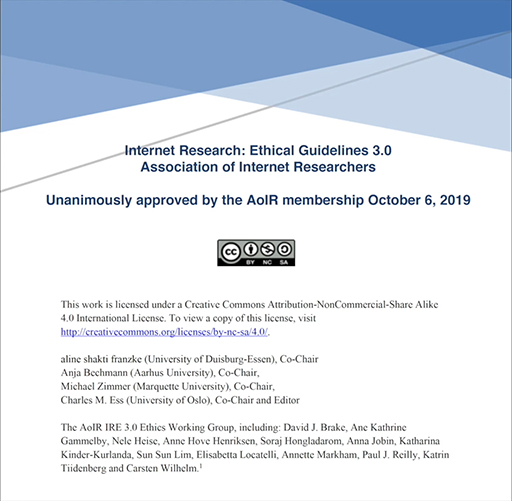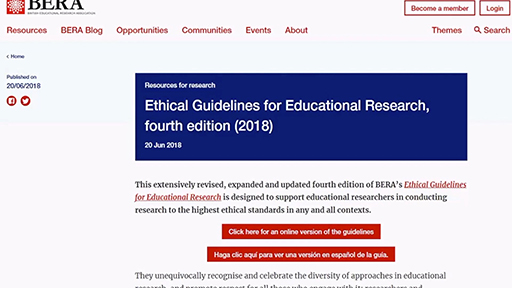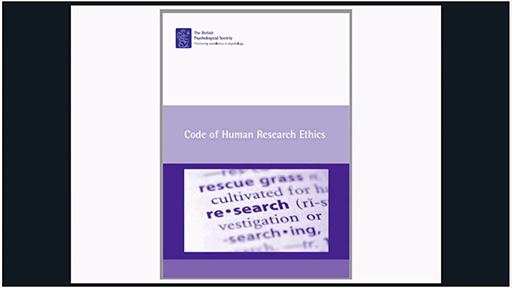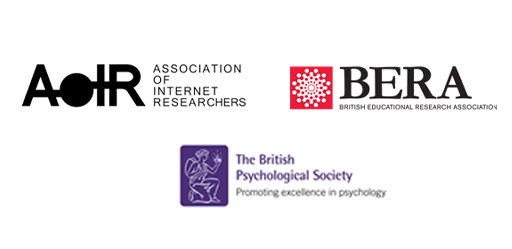2 Ethical guidelines for researchers
Ethical guidance for researchers can be gained from professional associations related to a researcher’s field of research, either as signed-up members of these associations or by reference to them as public documents. These can be national or internationally available and complement the guidance provided by individual organisations such as a researcher’s host university.
Activity 3 Ethical guidance in the social sciences
Part A
Watch each of the three screencasts in which academics from The Open University introduce the current ethical guidance from these key associations:
- Association of Internet Researchers – an international association based in the United States of America

- British Educational Research Association

- British Psychological Society

Part B
Think about:
- commonalities between the approaches taken by the three associations to ethical guidance
- at least one aspect of each guidance that is unique.
These are not the only professional and research associations producing ethical guidance; a list of other guidance that might be relevant is included in the further reading section at the end of this session.
Discussion
Overarching all of the disciplines in what might be termed ‘the social sciences’ is the guidance offered by the UK Economic and Social Research Council (ESRC, 2010 – see further reading section), which would need to be followed by any researcher whose study was funded by this Council. The individual associations, as well as universities providing guidance to their researchers, also ensure their own ethical research guidance fits with that of the ESRC. There is equivalent ethical guidance in the other UK research councils, which are all governed by advice by the UK Research Integrity Office (UKRIO, 2006–2020 – see further reading section).
What you will find in common across this guidance is that it is revised and that these revisions are generated consultatively. Each edition reviews the principles and values used to underpin the guidance. Any revisions are made in response to issues that have become apparent in the preceding years, and anticipate what is needed to support a contemporary researcher undertaking a study in the relevant field. They are increasingly non-prescriptive, without ‘should’ or ‘must’ being used. This empowers a researcher to use the advice in appropriate ways befitting their own context and values. For this, a researcher needs to be deliberative, which means that they need to make informed and reasoned choices to justify their actions.

